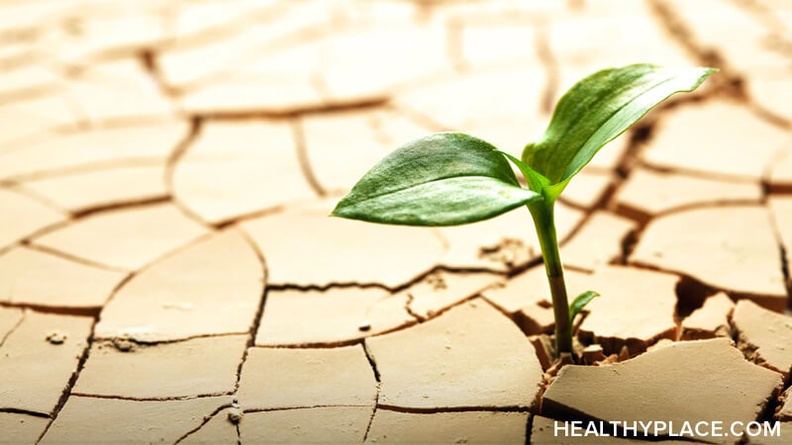Build Resiliency to Improve Self-Esteem

Build resiliency to gain the ability to bounce back from a situation that throws you off, and because there's a direct correlation between it and self-esteem, you'll build self-esteem too. When your self-esteem is strong, you have the confidence to leave your comfort zone because you aren't worried about your ability to recover if things go south. You can build healthy self-esteem by focusing on improving your resiliency.
Last week, I felt like my depression was lifting after weeks of feeling lost. I had practiced self-care by meeting with my therapist, and self-love by allowing myself to put everything else on hold while I focused on my mental health, and bravery by facing my fear of the virus to get my hair done. Each of these things helped my spirits climb, and I began to look forward to adding activity back into my day. Then my 19-year-old cat began her descent into her final days.
I've had a lot of practice bouncing back. My resiliency is strong because of the lessons I've learned from my study of risk management and from life itself. You don't reach the age of 60 without learning that things can and will go wrong, and I've had my share of traumatic experiences. I want to share how I built my resilience over time and how it helped my self-esteem by allowing me to complete my video for HealthyPlace this past weekend while facing the loss of my long-loved companion, Nips.
Practice Risk Management to Build Resiliency
I learned about risk management during my career as an IT professional in the insurance industry. Insurance itself is all about practicing excellent risk management, but it was my role as a software development project manager that taught me how to identify, assess, and manage risks to improve my success rate. Practicing risk management builds resiliency by naturally limiting your potential losses, and knowing you can recover builds your self-esteem. Here's how it works and how I applied it this week.
- Identify -- Take the time to look through your plans for any project and for life itself to find things that could possibly go wrong. Nips' health started to fail almost a year ago, and I thought I was losing her several times since then, so this risk was clear in my mind. Whenever you create a plan, play the devil's advocate to identify as many risks as possible.
- Assess -- Think about how likely the risk is to occur, and how much it might derail you from your plan. This helps you prioritize the importance of managing the risk. If it's likely to occur and likely to throw you off your course, then it's worth the time to manage this risk. Nips' death fit both parameters and knowing this prompted me to prepare.
- Manage -- Risks can be avoided by changing your plans, or their impact can be lessened by taking certain actions. The first thing I did when Nips' health issues began was to adopt a new kitten. The addition of Samwell Tarly to my family lessened the risk to my mental health that could occur by losing Nips. He added joy to each day and gave me another reason to get out of bed. When Nips started getting worse last week, I called the vet to find out their euthanasia procedures during the pandemic so I would be as prepared as possible. I asked my friend, a vet tech, to come over and help me care for Nips to make sure I was doing everything possible for her. Each of these actions helped mitigate, or lessen, the risk that I would lose it totally when she finally passed.
Self-Esteem Grows as You Build Resiliency
When you practice risk management, your resiliency will grow because you will learn to trust that you are doing the best you can to prevent events that will derail you. Because I was as prepared as possible for Nips leaving me, I was able to grieve while also honoring my commitment to provide a video for my blog. This made my self-esteem blossom and increased my confidence in my abilities to weather any storm.
Resiliency allows you to stretch your comfort zone and continue to grow without fear. Anxiety about the unknown and the future lessen when you are brave enough to look ahead at what may happen and figure out how to keep yourself on the path you chose. This all leads to healthy self-esteem.
Be strong, be brave, build your resilience, and watch your self-esteem grow.
Do you think of yourself as resilient? Is there something you're avoiding thinking about because the possibilities frighten you too much to examine them? I'd love to hear your thoughts about your ability to bounce back from adversity and how it affects your self-esteem.
APA Reference
Kaley, J.
(2020, July 8). Build Resiliency to Improve Self-Esteem, HealthyPlace. Retrieved
on 2026, February 24 from https://www.healthyplace.com/blogs/buildingselfesteem/2020/7/build-resiliency-to-improve-self-esteem